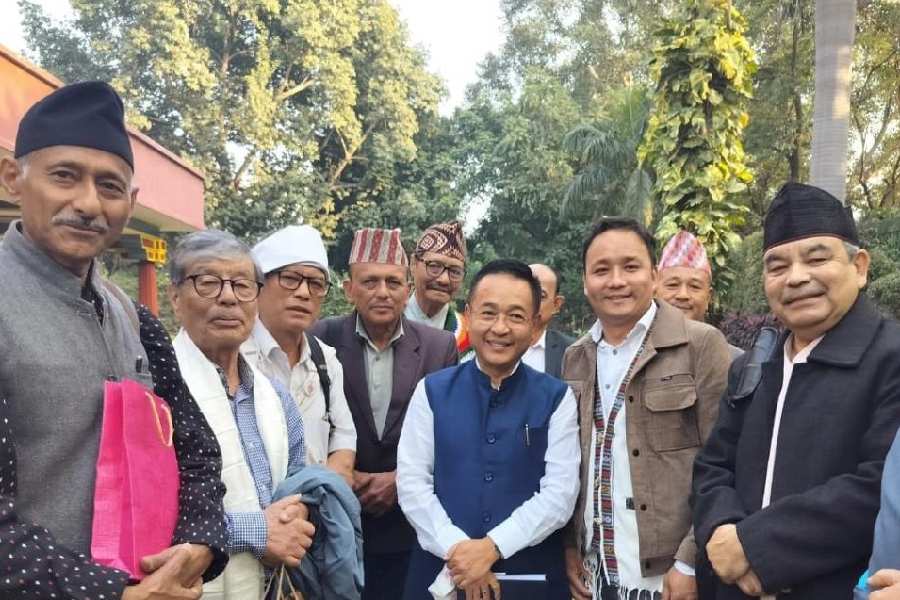A delegation from Darjeeling hills went to Delhi to press for the demand of Scheduled Tribe status for 11 hill communities, as promised by the BJP in 2019, ahead of the 2024 Lok Sabha polls.
Sources said delegation of Darjeeling-based Gorkha Bharatiya Janjati Mahasangh, comprising representatives of the 11 Gorkha communities, met Union tribal minister Arjun Munda last week.
The delegation was led by BJP MP Raju Bista.
The communities demanding the tag are Bhujel, Gurung, Mangar, Newar, Jogi, Khas, Rai, Sunuwar, Thami, Yakka (Dewan) and Dhimal.
Sikkim chief minister Prem Singh Tamang (Golay) met the Darjeeling delegation in Delhi. Golay also wants tribal status for the communities.
"Sikkim chief minister P.S. Golay said we should together press for the demand. Following our meeting with the Union tribal minister, we are hopeful that our demand will be fulfilled,” said Mahasangh president M.S. Rai.
The Telegraph had earlier highlighted a letter written by the additional registrar general of the office of the registrar general of India (ORGI) to the joint secretary in the ministry of tribal status on March 24, 2017, which stated that “inflow of Nepalese immigrants will further increase if the said communities are granted ST status.”
The ORGI further observed: “The consequences of specifying all these (Gorkha ) communities as STs will be that almost all the permanent residents of Sikkim will be Scheduled Tribes, and the more backward communities like Lepcha and Bhutia (who are ST) would be disadvantaged and deprived.”
The fact that many of the communities demanding tribal status follow Hindu religion was also seen as a stumbling block.
A source who was part of the delegation said the team addressed these three issues before Munda.
"We pointed out there are already more than 9 per cent of Hindu tribals in the existing Scheduled Tribe List of India. Even after following Hinduism we have not yet given up on animal sacrifice, common to all tribals, who are originally nature worshippers,” said a source.
Countering the Nepal influx argument, the team told Munda that despite Tamang and Limbu of the Gorkha community being granted tribal status in 2003, the decadal census figures did not show any influx of these communities.
“We cited examples to prove that STs granted the status much earlier were not disadvantaged,” said a source.
Sources said that Darjeeling BJP MLA Neeraj Zimba also met the Union tribal minister last week, which hints at the keenness of hill BJP leaders on this issue.
The Union ministry of tribal affairs formed a committee in 2016 to scan and
recommend tribal status to the 11 communities.
Since then, the committee has been made thrice. The final report compiled in 2019 by a team headed by M.R. Tshering, joint secretary, ministry of tribal affairs, passed the buck to the Office of Registrar General of India.










